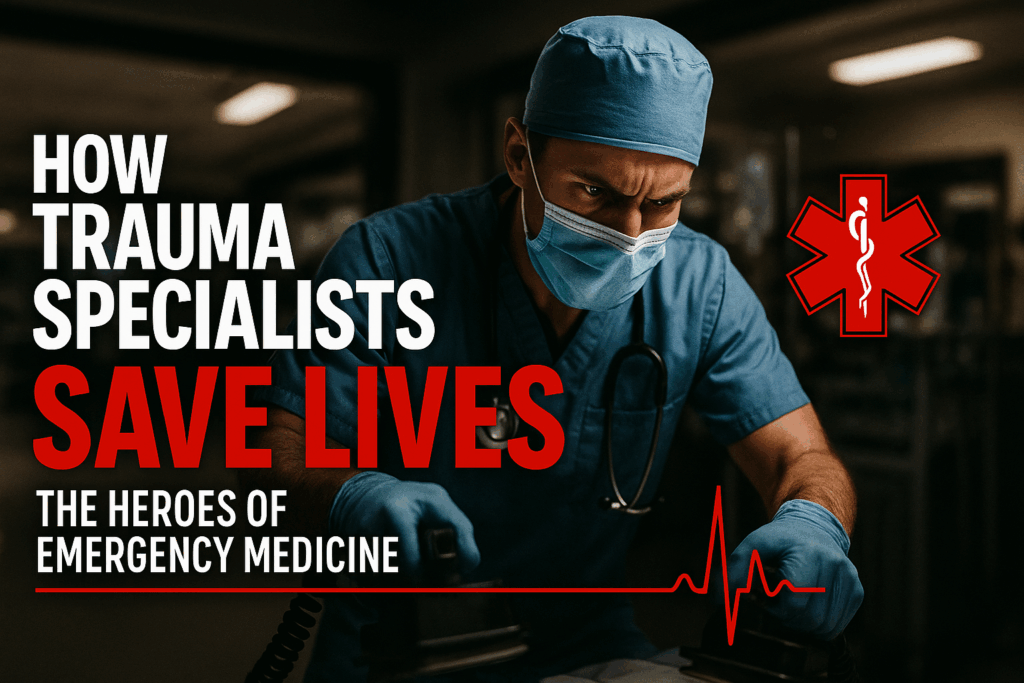
When a traumatic injury occurs—whether from a car accident, a fall, or a violent incident—every second counts. The difference between life and death often hinges on the expertise of trauma care specialists, the highly trained medical professionals who stabilize and treat critically injured patients in emergency settings.
In this blog, we’ll explore the indispensable role of trauma care specialists in emergency medicine, the skills they bring to the table, and why their work is vital to saving lives.
Who Are Trauma Care Specialists?
Trauma care specialists are physicians, surgeons, nurses, and emergency medical technicians (EMTs) who specialize in acute injury management. They work in trauma centers, emergency departments, and pre-hospital settings, providing rapid assessment and life-saving interventions.
These professionals often include:
- Trauma Surgeons – Experts in performing emergency surgeries to control bleeding, repair injuries, and prevent complications.
- Emergency Physicians – Skilled in initial stabilization, diagnostics, and coordinating care.
- Trauma Nurses – Provide critical care, monitor vital signs, and assist in procedures.
- Paramedics & EMTs – Deliver on-scene care and rapid transport to trauma centers.
Why Trauma Specialists Are Crucial in Emergencies
1. Rapid Response & Triage
In trauma cases, the “Golden Hour”—the first 60 minutes after injury—is critical. Trauma specialists are trained to quickly assess injuries, prioritize treatment, and prevent further harm.
2. Advanced Life-Saving Techniques
From intubation and chest tube insertion to emergency surgeries, trauma specialists perform complex procedures under extreme pressure. Their expertise ensures patients receive the best chance of survival.
3. Multidisciplinary Coordination
Trauma care is a team effort. Specialists collaborate with radiologists, anesthesiologists, and rehabilitation experts to ensure seamless care from the ER to recovery.
4. Handling Complex Cases
Trauma cases often involve multiple injuries (e.g., head trauma, fractures, internal bleeding). Specialists are trained to manage these complexities simultaneously.
The Impact of Trauma Care Specialists
Studies show that access to trauma centers staffed with specialists reduces mortality rates by up to 25%. Their ability to act swiftly and decisively transforms outcomes for patients with severe injuries.
Conclusion
Trauma care specialists are the unsung heroes of emergency medicine. Their expertise, quick decision-making, and technical skills save countless lives every day. As emergency medicine continues to evolve, the role of trauma specialists remains essential—ensuring that when disaster strikes, patients receive the best possible care.

